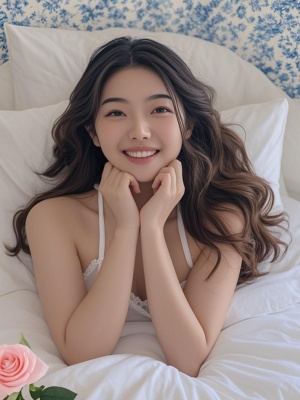The Timeless Art of Classical Portraits: A Comprehensive Exploration
Introduction
Classical portraits have captivated audiences for centuries, serving as windows into history, culture, and human emotion. These masterpieces go beyond mere representation - they capture the essence of their subjects through meticulous technique and artistic vision. From Renaissance oil paintings to modern digital interpretations, classical portraiture remains one of the most powerful forms of artistic expression.
At MediaAI's gallery, we preserve this artistic tradition while embracing contemporary technologies. This article explores the rich history, techniques, and enduring significance of classical portraits in today's visual culture.
The Historical Evolution of Classical Portraits
From Ancient Roots to Renaissance Mastery
The tradition of classical portraits dates back to ancient civilizations, with Egyptian funerary portraits and Roman busts representing early forms. However, it was during the Renaissance that portrait painting reached new heights of technical and expressive sophistication.
- Early Renaissance: Focus on religious figures and donors
- High Renaissance: Mastery of perspective and human anatomy
- Baroque period: Dramatic lighting and emotional intensity
The Golden Age of Portraiture
The 17th-19th centuries marked the golden age of classical portraits, with artists like Rembrandt, Velázquez, and Gainsborough creating iconic works. These masters developed techniques that still influence portrait artists today:
- Chiaroscuro lighting for dramatic effect
- Complex layering of oil paints
- Psychological depth in facial expressions
Technical Mastery in Classical Portraits
Creating authentic classical portraits requires specialized knowledge and skills. Traditional methods involve:
- Precise anatomical drawing
- Understanding of color theory and flesh tones
- Mastery of brushwork techniques
Modern artists can learn from these techniques while incorporating new tools. Our AI painting guide explores how technology can complement traditional methods.
Problem-Solution Matrix for Portrait Artists
| Common Challenges | Classical Solutions | Modern Adaptations |
|---|---|---|
| Capturing likeness | Detailed preliminary sketches | Digital reference tools |
| Skin tone accuracy | Limited earth pigment palette | Advanced color matching software |
| Preserving artwork | Varnish protection layers | High-resolution digital archiving |
The Enduring Legacy of Classical Portraits
Classical portraits continue to influence contemporary art in profound ways. Many modern photographers and digital artists study classical techniques to enhance their work. At MediaAI, we've developed tools that help transform photographs into classical-style portraits while maintaining artistic integrity.

Key elements that make classical portraits timeless include:
- Emotional resonance with viewers
- Technical excellence in execution
- Historical and cultural significance
Conclusion
Classical portraits represent more than artistic skill - they embody our enduring fascination with human identity and expression. Whether created with traditional materials or through modern digital processes, these works continue to inspire artists and captivate audiences worldwide.
For those interested in exploring classical portraiture further, we recommend visiting The National Gallery or experimenting with our face swap technology to understand classical composition techniques.